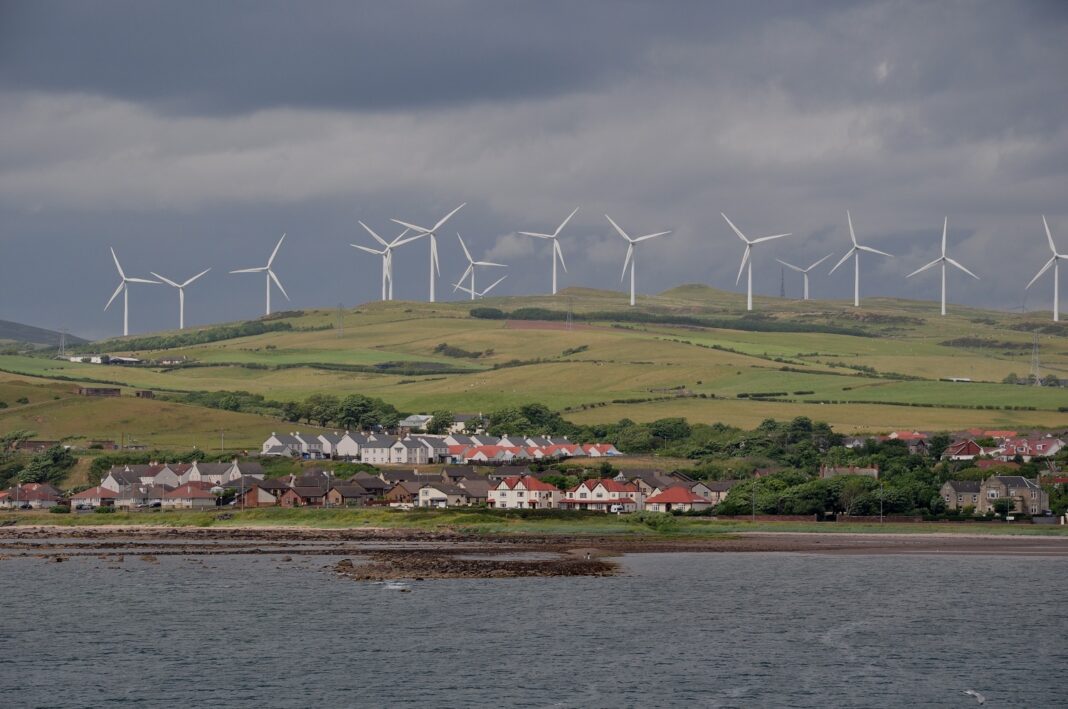23 JULY 2024 | OPINION
Among the itemised plans for more devolution and quangos, Scotland was the only region specifically named in the King’s Speech. The Scots are to host the new ‘clean energy’ organisation ‘Great British Energy’ (GBE.) So far, no location has been announced, but it will happen: it is a banner in Labour’s advance to reconquer Caledonia.
Having routed the SNP and gained 36 Scottish seats in July’s General Election, Labour needs to consolidate its support north of the border before the Scottish Parliamentary elections in May 2026. Their MSP numbers in Holyrood put them in third place, behind the SNP and Conservatives. Yet they are currently predicted to overtake both next time, dominating a hung parliament. That is, provided they can keep their rivals on the defensive.
Starmer has sold himself on change and equity, competently delivered. Our energy problems will be a key test. In 2022, Starmer surveyed Britain’s mess and told the Labour Party Conference that “we will set up Great British Energy within the first year of a Labour government”; a year ago, he said it would be in Scotland, “delivering the jobs and investment in Scottish communities that for far too long have been let down by the SNP and Conservatives”. Clean energy would suit his climate change theme and, he claimed, GBE would create thousands of Scottish jobs, yet still result in lower domestic bills… eventually.
If Starmer’s program of devolution, job creation and wealth distribution succeeds, it may put an end to Scottish dreams of secession – economically challenging dreams, concerns about which may have influenced the Scots’ 2014 decision not to take the big step into the unknown.
The SNP first came to prominence in the October 1974 GE, when there was general dissatisfaction with both Labour and the Tories. The Scots Nats scored 30% of the vote in Scotland; yet although Labour introduced a Bill for a Scottish Assembly, the low turnout for the 1979 referendum caused the plan to fizzle out.
Nevertheless, Labour became committed to a regional parliament, thinking it would retain control of it. Its 1997 manifesto said: “Our proposal is for devolution, not federation. A sovereign Westminster Parliament will devolve power to Scotland and Wales. The Union will be strengthened and the threat of separatism removed.” The New Labour landslide – the highest since 1966 – saw SNP support drop to 22%, while the Conservatives continued their steady post-1950s decline.
Yet the SNP revived. Alex Salmond’s 2007 first (minority) Scottish government abolished university tuition fees, scrapped prescription charges and committed to renewable energy; in 2011, he returned with an overall majority, ‘a feat previously thought almost impossible under the additional member system used in elections for the Scottish Parliament’. Although Salmond’s 2014 referendum bid for Scottish independence failed, when he subsequently resigned and went to Westminster, he left his party in excellent shape: the SNP soared to 50% of Scots’ votes in the 2015 General Election.
Then the tide turned, leading to the Party’s 2024 electoral disaster. The BBC attributed it to “disillusionment over a lack of progress towards independence, internal divisions over gender reform and the ongoing police investigation into party finances, to name a few”. The Guardian largely concurred, though it also opined independence is “no longer a priority” and noted Scots’ “disillusionment with the series of scandals hitting it at Holyrood”.
One of those scandals was the Party’s treatment of its former leader, Alex Salmond, acquitted of sexual assault charges in 2020 after what his allies suggested was a “witch hunt”.
Before Labour presses on with its delegation of Parliamentary powers, it has an Augean stable to cleanse in Scotland. Speaking in the Commons debate (18 July) about the adequacy of the 1998 Scotland Act, Sir David Davis told of blurred lines between government, civil servants and the legal establishment, plus the suppression of truth that led to Craig Murray’s jailing for overstepping the mark in his blog-journalism on Salmond’s case.
Embedding the video of Davis’ speech, Murray says the affair demonstrates “rampant corruption“. Sir David concluded:
“To ensure that it never happens again, we must review the consequences for civil servants found to have acted improperly by parliamentary committees, we must strengthen the investigative powers and legal protections offered to Members of the Scottish Parliament, and we must immediately separate the powers of Scottish Law Officers from their roles in administering criminal justice and providing advice to the Scottish Government. It is time to invoke a famous phrase, often invoked in England but just as pertinent in Scotland: fiat justitia — let justice be done.”
There has grown a custom in recent times of MPs shunning (to order) inconvenient truths – remember Andrew Bridgen’s playing to an empty House on Covid? Likewise, Sir David prefaced his remarks with: “I will hesitate for just a second as the Chamber clears — my normal popularity”. But these truths must be faced, or Labour will earn the deep public distrust that has spectacularly winnowed the Opposition benches.
So far, Starmer has been careful not to scare off the money men and patriots: fiscal probity (budgets submitted to the OBR) plus ‘Great British’ this and that. All will be for naught if he mishandles Scotland through weakness or overreaching.
Clean power – that is what is wanted.


























